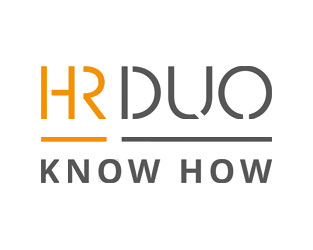Previously referred to as Industrial Relations, Employee Relations is a practice which focusses on both the individual and collective relationships in the workplace.
The practice focusses on managers, training and supporting them to nurture trust-based relationships with their teams. In doing so, the intention is to generate a positive work culture which improves the overall productivity and output of a business, as well benefitting the employees personal well-being.
As employee relations specialists, our values are expressed in ‘Positive Employee Relations’.
Positive Employee Relations
Positive employee relations are about: –
- Communications (ongoing and focused);
- Employment procedures (particularly grievance and disciplinary);
- Negotiating style (based on mutual needs);
- HR culture (based on marketplace success).
Employment procedures are there to deal with difficulties that arise in the employment relationship and at some stage all employees will have issues that will cause them concern. This can be due to the behaviour of work colleagues, the attitude of managers, the operation of a Company policy, thwarted ambitions and a whole host of other reasons.
Even the most perfect of organisations can leave staff experiencing difficulties feeling alone, isolated, de-motivated and frustrated. However, recognising the value of positive employee relations, a good organisation will ensure that these feelings won’t persist and fester by addressing the staff member’s complaint quickly and fairly and at the lowest level possible within the organisation.
Resolve the Complaint Quickly
Good day-to-day management ensures that the majority of complaints are resolved quickly and to the satisfaction of all concerned. Managers should be attempting to anticipate their staff’s grievance by capturing the complaints or potential complaints so that they can do something about it before they become problems. The best managers respond quickly recognising that all complaints are potential disputes.
It is not always possible to find quick and easy solutions to employee’s complaints and a complaint that is not or cannot be resolved will be expressed formally as a grievance. When managers know that employees are not satisfied with the response given to their complaints they should actively encourage them to formalise their concerns by registering a grievance.
Positive Employee Relations is managed through effective HR procedures, a coherent HR strategy and the careful management of the bargaining/ engagement relationship with employees and/or trade unions.
The management of employment relationships is a strategic issue. The most appropriate employment relationship required by your business strategy should be one which engenders a commitment to organisational aims, allows the employee to identify with the organisation and be more productive in the service of the goals of the organisation.
At its most effective, positive employee relations can support the development of managers by providing clear processes for managing grievance, discipline etc as well as ensuring that managers are trained in their best practice operation.
It supports communications that create shared understanding and clarity of decision making. Strong relationships are based on fairness, trust and mutual respect. These values are supported by employee relations processes, structures and procedures.
The business of work is a collaborative activity involving mutual dependencies and interests, even when conflict arises.
So, what are the elements of positive employee relations?
- Good Communications
- Trust
- Managing perceptions and beliefs
- An ethical approach
- Clear expectations
- Conflict Resolution
It works best when the capabilities of line managers have been enhanced in the areas of: –
- Communications
- Company Rules and Expectations
- Work assignment
- Conflict resolution
- Self-awareness and personal impact
With enhanced capabilities, you get more regular engagements with staff, a higher level of professionalism, managing through the laws and regulations of the company and providing regular performance feedback become part of the day to day engagements with staff.
Poor Employee Relations
Some of the potential consequences of a poor employee relations climate include:
- Greater use of representatives or employment forums even on minor work-related matters
- Significantly higher use of management time on mundane operational matters
- Adversarial, combative, low trust relationships between management and staff with no resolution apparent
- Poor teamwork and integration of work processes
- Employee absenteeism
- Employee turnover
- Litigation
The aim of positive employee relations is to create a culture where staff and managers may be assertive in the context of a shared understanding and positive commitment to the organisation strategy and their rights and responsibilities.
The culture can be identified as one of openness to change, flexibility, hard working and productive.
Positive employee relations are about aligned leadership and a basis for building congruence with the employee relations of the organisation and the leadership and strategic direction.
Do you require further support?
HR Duo provide Employee Resolution expertise and support to SME employers to effectively manage employee relations. We provide guidance to enable managers to seek solutions, ask questions, and set up systems to pro-actively solve problems before they turn into time-wasters and legal risks. Get in touch for more information today.
July 17, 2017
By Jerome Forde
